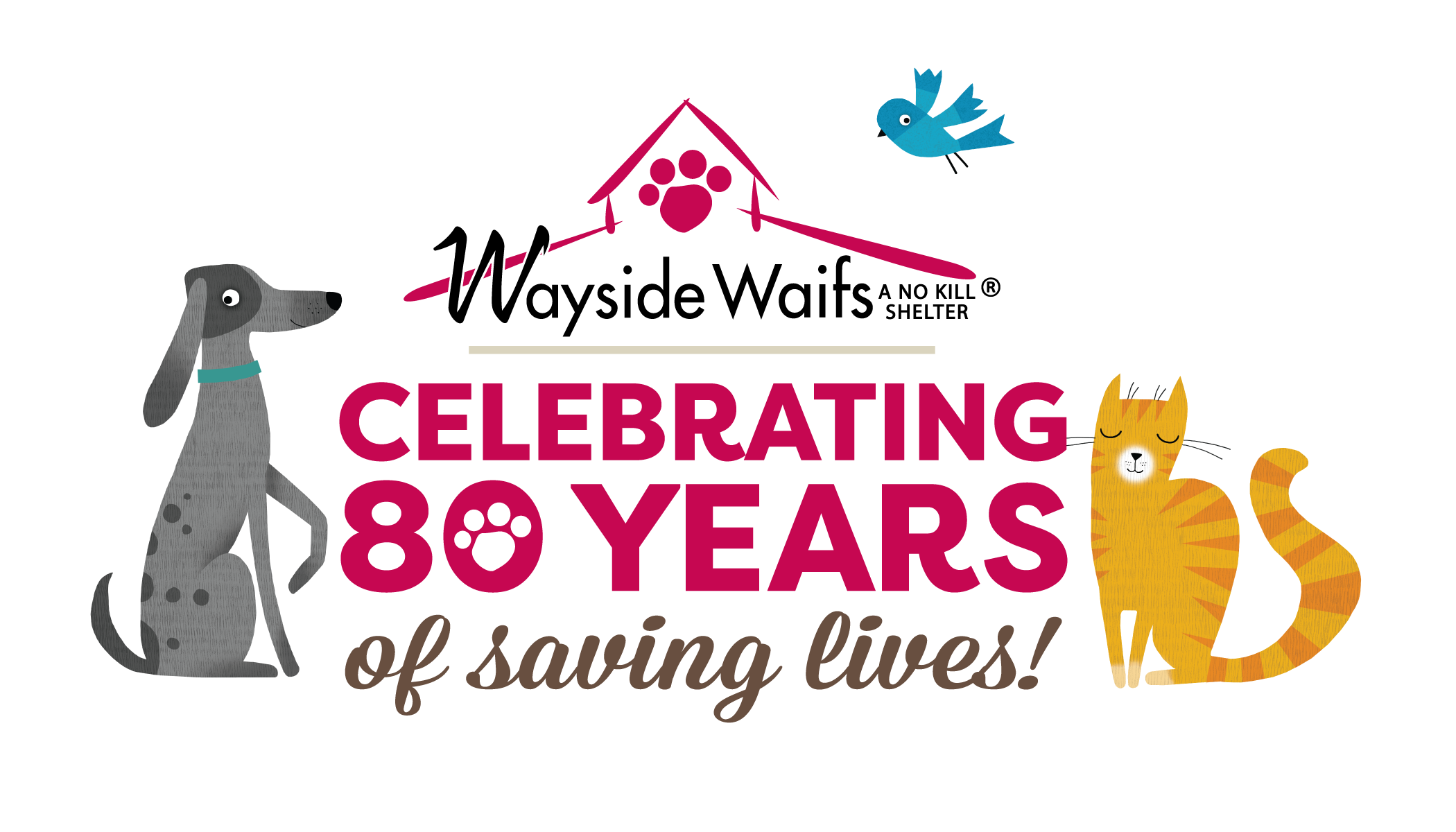Here at Wayside Waifs, we appreciate every individual’s dedication and compassion they bring to our organization. This includes our wonderful veterinarians, Dr. Scott and Dr. Spangler. We decided to ask both of them a few questions so our readers could get to know them a little better!
1. What made you decide to be a veterinarian?
Dr. Scott: “I grew up in a pet friendly household. My family loves pets, and from early on I’ve always had an affection for animals. I excelled in science, and I just combined the two.”
Dr. Spangler: “Along with liking animals, I liked that it was challenging and involved problem solving. You do have to enjoy the day-t0-day that comes with working with animals.”
2. What kind of animals do you have personally?
Dr. Scott: “I have German Shepards and English Bulldogs, a Siamese cat, and two fish.”
Dr. Spangler: “One bird, two fish, two rats, two dogs, one cat, and one frog.”
3. Do you have a preference of animals you work with, such as dogs, cats, or small animals?
Dr. Scott: “I don’t really have a preference, I like all animals equally.”
Dr. Spangler: “I do actually like working with cats more, but like them all.”
4. How do you stay up to date in the field of veterinary medicine?
Dr. Scott: “I collaborate with the vets here and the vet students. I also read several journal articles. All of that combined with trial and error and clinical experience help me stay current.”
Dr. Spangler: “I use the same techniques as Dr. Scott, but I prefer to read journal and online articles mostly.”
5. What was your favorite thing to learn in school? Least favorite?
Dr. Scott: “Everyone was nice to learn because of the other students. We all had such wonderful teamwork, and we would help study with each other. My favorite subject might have been anatomy. My least favorite part was learning about time management. I woke up, studied, went to class, studied again, and went to bed. Time management was essential to succeed.”
Dr. Spangler: My favorite subject was Physiology, but my least favorite was Anatomy.”
6. Can you think of one medical case that you’ve encountered that has defined your career/that you will always remember?
Dr. Scott: “A six-year-old male neutered cat was going under sedation for a urinary catheter, and his owner was worried about sedation. She called me several times that day, and the last thing I said to her was ‘Trust me, everything will be fine.’ The cat died under anesthesia, and I felt terrible. Come to find out, during the necropsy we found out he had aggressive cancer and would’ve passed in a few months. While it was still sad, I was able to console the owner, and we became long-term friends after the fact. I’ll never forget this one.”
Dr. Spangler: “I performed my first FHO(see below) surgery on a dog, and I ended up adopting it. The second FHO surgery I performed resulted in me taking that dog home too. I still have both of those dogs so I won’t forget those surgeries and those outcomes.”
An FHO, or femoral head ostectomy, is a surgical procedure that aims to restore pain-free mobility to a diseased or damaged hip, by removing the head and neck of the femur (the long leg bone or thighbone).
7. What is a common misconception people have about what you do?
Dr. Scott: “Everyone thinks we are in it for the money. Veterinarians don’t make what people assume, and we still have student loans too. We absolutely do what we do for the animals!”
Dr. Spangler: “Everyone talks about how great puppy breath is. It reminds them of something, or they just love the smell. I actually don’t like it that much, but everyone assumes we must love it.”
8. What made you decide to work in a shelter environment versus a private practice?
Dr. Scott: “I was recruited, and it basically chose me. I enjoy it too much to think about changing, and I thought so then too!”
Dr. Spangler: “I like the fast-paced environment shelters bring. There is always something knew, and I like the idea of finding them homes. That never gets old.”
9. How do you feel about euthanasia?
Dr. Scott: “It’s not something any of us want to do, but it is a necessary evil. I take their quality of life very seriously, so I feel comfortable performing them knowing I’m easing their suffering.”
Dr. Spangler: “We are ending their suffering, even though it is still very sad. I help animals move to the next stage of their life, while giving them the most comfortable relief of pain and discomfort. They are surrounded by people who care for them and have stood by them.”
10. Do you find it difficult separating your personal life from your professional life?
Dr. Scott: “I can separate personal from work, but not work from personal. Social media brings more ways of communication and to most everyone, I’m always a veterinarian answering questions.”
Dr. Spangler: “It kind of comes with the job. I get called in on my days off sometimes, or at least questions. When people find out what my job is, I immediately get questions and find out about their animals, and all of their past animals. It comes with the territory.”
We appreciate their efforts and dedication to our Waifs! Meet some of the animals they have treated during our adoption hours!
- Monday: CLOSED
- Tuesday: Noon-8pm
- Wednesday: Noon-8pm
- Thursday: Noon-8pm
- Friday: Noon-8pm
- Saturday: 10am-5pm
- Sunday: 10am-5pm
Written by Teryn J.


